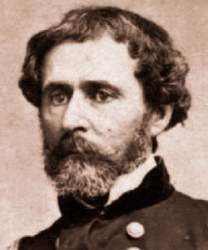Record Data
Source citation
"The Presidential Campaign - Gen. Fremont withdraws from the Canvas," New York Times, September 23, 1864, p.1.
Recipient (to)
The American Electorate
Type
Letter
Date Certainty
Exact
Transcriber
John Osborne, Dickinson College
Transcription date
Transcription
The following text is presented here in complete form, as it originally appeared in print. Spelling and typographical errors have been preserved as in the original.
BOSTON, Sept. 21, 1864.
GENTLEMEN:
I feel it my duty to make one step more in the direction indicated by my letter of the 25th of August and withdraw my name from the list of candidates.
The Presidential question has in effect been entered upon in such a way that the union of the Republican party has become a paramount necessity.
The policy of the Democratic party signifies either separation, or reestablishment with Slavery. The Chicago platform is simply separation. Gen. McClellan's letter of acceptance is reestablishment with Slavery.
The Republican candidate on the contrary is pledged to the reestablishment of the Union without Slavery; and, however hesitating his policy may be, the pressure of his party will, we may hope, force him to it.
Between these issues, I think, no man of the Liberal party can remain in doubt; and I believe I am consistent with my antecedents in withdrawing, not to aid in the triumphs of Mr. Lincoln, but to do my part toward preventing the election of the Democratic candidate.
In respect to Mr. Lincoln, I continue to hold exactly the sentiments contained in my letter of acceptance. I consider that his Administration has been politically, militarily and financially, a failure, and that its necessary continuance is a cause of regret for the country.
There never was a greater unanimity in a country than was exhibited here at the fall of Sumter, and the South was powerless in the face of it. But Mr. Lincoln completely paralyzed this generous feeling. He destroyed the strength of the position and divided the North when he declared to the South that Slavery should be protected. He has built up for the South a strength which otherwise they could have never attained; and this has given them an advocate on the Chicago platform.
The Cleveland Convention was to have been the open avowal of that condemnation which men had been freely expresing to each other for the past two years, and which had been made fully known to the President. But in the uncertain condition of affairs leading men were not found willing to make public a dissatisfaction and condemnation which could have rendered Mr. Lincoln's nomination impossible; and their continued silence and support established for him a character among the people which leaves now no choice.
United, the Republican party is reasonably sure of success; divided, the result of the Presidential election is, at the least, doubtful.
I am, gentlemen, very truly yours,
J.C. FREMONT.


